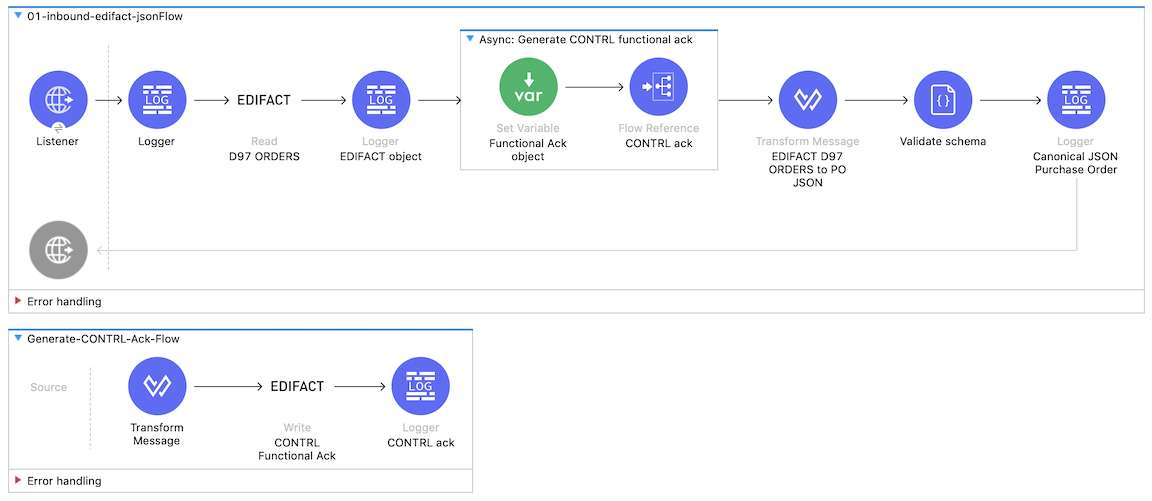Transforming inbound and outbound EDIFACT messages
Transforming inbound and outbound EDIFACT messages
home


This example illustrates the below B2B/EDI integration use cases leveraging Anypoint EDIFACT Connector:
- Transform inbound EDIFACT ORDERS purchase order messages into a canonical JSON format, with a Functional acknowledgement (CONTRL) generated.
- Transform canonical PO Acknowledgement JSON messages into outbound EDIFACT ORDRSP messages.
Setup the Example
- Open the Example project in Anypoint Studio from Anypoint Exchange.
- Install the latest version of Anypoint EDIFACT connector
Run the Example
- Run the application in Anypoint Studio
- Testing Inbound flow
- Using a REST Client, POST a raw EDI EDIFACT ORDERS message to the URL: http://localhost:8081/edifact/inbound
- Payload: src/main/resources/test-data/inbound-edifact-order.edi
- The app returns the translated canonical JSON purchase order message
- Functional Acknowledgement (CONTRL) is generated and printed in the log. It can be sent via any standard protocol such as FTP, SFTP or AS2 back to the trading partner.
- Using a REST Client, POST a raw EDI EDIFACT ORDERS message to the URL: http://localhost:8081/edifact/inbound
- Testing Outbound flow
- Using a REST Client, POST a JSON message to the URL: http://localhost:8081/edifact/outbound
- Payload: src/main/resources/test-data/outbound-po-ack-canonical.json
- The Mule app returns the generated EDIFACT ORDRSP message. It can be sent via any standard protocol such as FTP, SFTP or AS2 back to the trading partner.
- Using a REST Client, POST a JSON message to the URL: http://localhost:8081/edifact/outbound